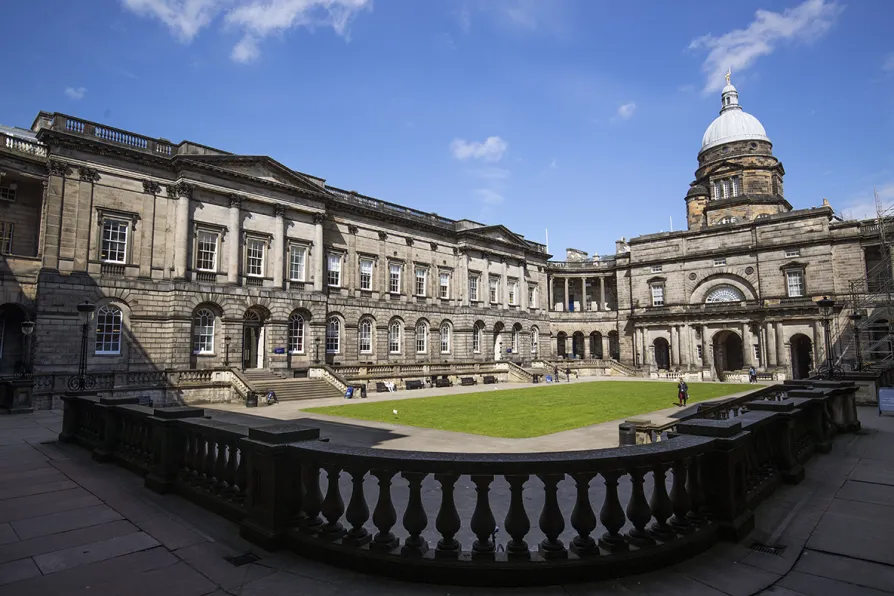
 A general view of the University of Edinburgh Old College, Edinburgh, March 2019
A general view of the University of Edinburgh Old College, Edinburgh, March 2019
THE University of Edinburgh has issued an apology for its historic links to slavery and colonialism after its four-year-long race review was published today.
The report — Decolonised Transformations: Confronting the University of Edinburgh’s History and Legacies of Enslavement and Colonialism — was the result of extensive archival research into “legacies of wealth” amassed from slavery and colonialism in the 17th and 18th centuries.
Such bequests still form the basis for endowments and capital campaigns in the 21st century: the university remains among the richest in the Britain.
Researchers also examined the roles of prominent figures at the university during the Scottish Enlightenment, when theories of white supremacism and racial inferiority propped up the imperial order.
Before his death last month, the work was overseen by Scotland’s first black professor Geoff Palmer, a long-time campaigner to bring Scotland’s colonial past to light, and he offered extensive feedback on the almost 50 recommendations in the report’s draft form.
Paying tribute to Prof Palmer, university principal and vice-chancellor Professor Sir Peter Mathieson pledged to “honour his memory through our ongoing commitment to advancing race equality within our institution and in society more broadly.”
He added: “Only by fully engaging with and understanding the entirety of our institutional past can we truly learn and move forward. We are unwavering in our commitment to a future where racism, racial discrimination and racialised inequalities have no place in higher education or society.
“We cannot have a selective memory about our past.”
Actions recommended include creating a committee to oversee requests for naming of university facilities and possible historic links to slavery and colonialism, and reparative justice via continued research into racial injustice, building connections with minoritised communities, anti-racism programmes and boosting scholarships.
Professor Tommy Curry, co-chairman of the race review’s research and engagement working group, said: “This review demonstrates a level of self-reflection that very few institutions have had the courage to embark on.”
Fiona McClement, co-leader of the race review response group, said: “Our aspiration is to be an anti-racist organisation.
“We want to ensure that we are a welcoming and nurturing environment in which all members of our community feel a sense of belonging and can flourish and succeed without facing unjust racialised barriers.”

It’s hard to understand how minor divisions can come to dominate the process of building a challenge to the rule of the rich when the desperate need for a vehicle to fight poverty and despair is so abundantly clear, writes MATT KERR













